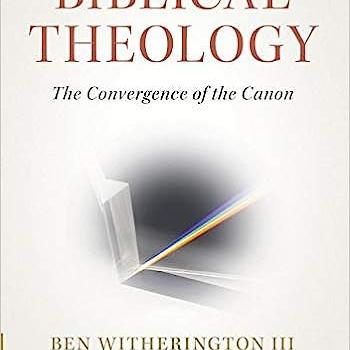Two of the more controverted verses in all of the Gospel of Mark are Mark 8.38 and 9.1. We intend to discuss them in some detail. If you have read many scholarly commentaries on Mark, then you will know that these verses have a long history of being belabored, and are often used to prove that Mark, bless his little heart, and perhaps even Jesus, had a flawed eschatology. They predicted the timing of the second coming wrongly. This critique goes back at least as far as the turn of the 20th century with A. Schweitzer’s famous treatment of the matter.
What happens, however, when we bear in mind that the term angelloi is as likely to refer to human messengers as divine ones? First of all notice that Mark 8.38 is part of a speech given to the disciples contrasting them with outsiders called ‘this wicked and sinful generation’. The honor and shame language is used to say that this wicked generations being ashamed of Jesus will be returned in kind later by Jesus himself. Then Jesus refers to ‘when he …. in the glory of his Father with his holy messengers’. I have left out the translation of the verb, because too often it is simply assumed that erchomai always means to come. This is in fact not true. It can also mean ‘to make an appearance’ and so can be translated ‘to appear’. For example, it probably means this in John 4.27, and perhaps in Romans 9.9 as well, though in the latter case it may mean ‘return’ another possible meaning of this verb.
Let us suppose then for a minute we translate Mark 8.38 with the verb ‘appear’ so we have the rendering ‘when he appears in the glory of his Father with the holy messengers’. I submit that this is the perfect introduction to Mark 9.1-8 in toto. Mark is referring to the Transfiguration in Mark 8.38 and the messengers in question prove to be the two great human messengers of the OT— Moses and Elijah, the representatives of the Law and the Prophets. Neither Mark 8.38, nor Mark 9.1 are referring to the parousia or second coming of the Son of Man. They are both referring to the Transfiguration.
Sometimes there has been the critique of this, or similar views of these two verses that Mark 9.1 becomes innocuous if it refers to the Transfiguration, since Jesus speaks of those present not tasting death before they see the Kingdom come with power, and according to the narrative here the Transfiguration transpired six days later. Several points are in order: 1) Jesus only takes some up the mountain, namely the inner circle of the disciples, Peter, James, John, so it is certainly true that some do see the glory of Jesus and his kingly nature and reign before they die; 2) it is not clear that Mark 9.1 is in its original chronological placement in this Gospel, since Mark is clearly presenting materials he has edited down, and he skips many things in the editing. In other words, the saying in Mark 9.1 may have been spoken earlier in the ministry of Jesus, but even if not, it is a mistake to ignore the cloud of danger that hovers over the whole narrative at this point in the Markan story. Jesus has already predicted his demise once in Mark 8, will do so again in Mark, 9, and twice more in Mark 10. In addition we have already heard at length about the death of John in Mark 6. The possibility that the disciples, who by now are out and sharing the good news in Galilee and elsewhere, might lose their lives as John did, and as Jesus would, at any time, must be taken seriously. In those dangerous and ominous days, Mark 9.1, even if it only referred to the coming week, would hardly have been an innocuous remark.
I thus conclude as follows: 1) the reference to angelloi in Mark 8.38 refers to human messengers, namely Moses and Elijah who appear with Jesus in glory, Jesus having taken three of his own messengers up the mountain for the experience; 2) erchomai in Mark 8.38 probably means ‘appears’ Jesus will appear in his Father’s glory. This is not a reference at all to the second coming, nor to its timing, nor is Mark 9.1. As the rest of Mark shows, the Kingdom of God is already breaking into the world through the ministry of Jesus, and the Transfiguration proves to be a revelation of the divine saving activity ‘in power’. The point of the glowing Jesus is to make clear that the divine saving presence resides in him, and as the voice is to say, the disciples should be listening to him— God’s divine Son.
In short, neither of these verse have anything to do with predicting a near horizon for the second coming. This conclusion is further supported by Mark 13.32 which tells us in no uncertain terms that ‘no one knows the timing of the return of the Son of Man’, not even Jesus who made no such predictions, not even the human or divine messengers (angelloi), only God. In other words, Schweitzer and his successors have misread the eschatology of Mark, and this misreading continues to be perpetuated in recent commentaries (see e.g. Boring and Collins).

















